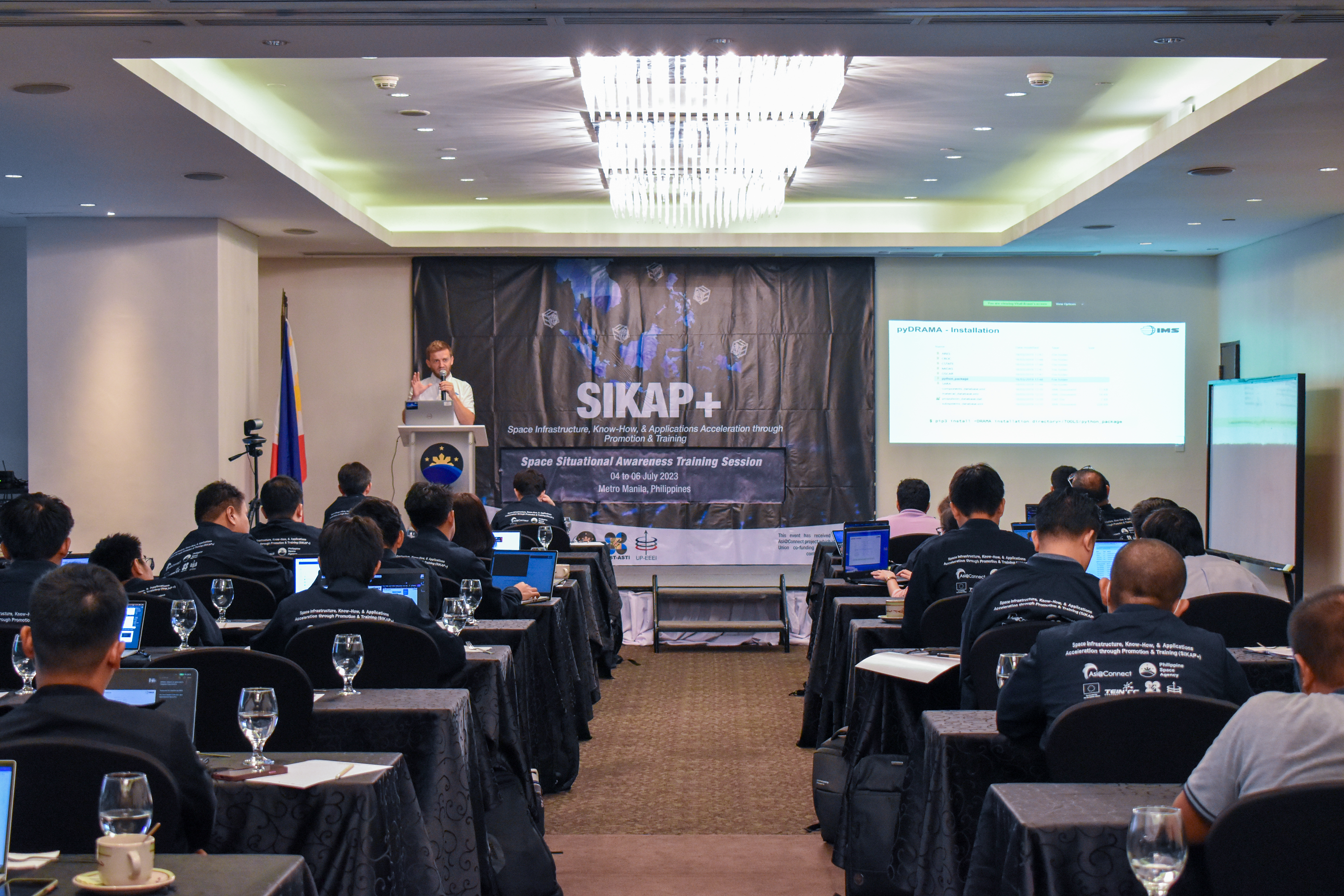The Philippine Space Agency conducted the Space Situational Awareness Training Session (SSATS) under the SIKAP+ project or the Space Infrastructure, Know-How, & Applications Acceleration through Promotion and Training conducted online and onsite at Joy~Nostalg Hotel & Suites Manila, Pasig City, Manila, from 04 to 06 July 2023.
Representatives from the Philippine Air Force (PAF), Philippine Navy (PN) Association of Southeast Asian Nations, Department of Science and Technology (DOST)-Advanced Science and Technology Institute (ASTI), and PhilSA joined the three-day workshop held in hybrid mode.
Experts from the Japan Aerospace Exploration Agency (JAXA), European Space Agency (ESA), and PhilSA tackled space debris mitigation and detection, regulation and standards for safety. The workshops utilized software to monitor and analyze space debris such as ESA’s Debris Risk Assessment and Mitigation Analysis (DRAMA) and JAXA’s Risk Avoidance Assist Tool Based on Debris Collision Probability (RABBIT).
Participants from the Geo-Informatics and Space Technology Development Agency (GISTDA) of Thailand and the Malaysian Space Agency (MYSA) facilitated additional presentations on space situational awareness (SSA) and space traffic management to exchange information and best practices.
SSA is an essential topic in the context of the Philippines as an emerging space nation due to the number of activities in the low earth orbit occupied by satellites. Understanding SSA provides information on space debris and threats that could result in damage to assets, disruption of critical services, and risks to human life both in space and on the ground.
SSATS is the third and final installment of the SIKAP+ project launched in May 2022. Previous training includes the Ground and Amateur Radio Operation for Satellite Communication Training Session in August 2022 and the Satellite Data Processing Training Session (SDPTS) in May this year.
The SIKAP+ is an @ AsiaConnect sub-grant project implemented by PhilSA with DOST-ASTI and UP EEEI, funded by the European Commission (EC), and managed by the Trans-Eurasia Information Network*Cooperation Center (TEIN*CC).
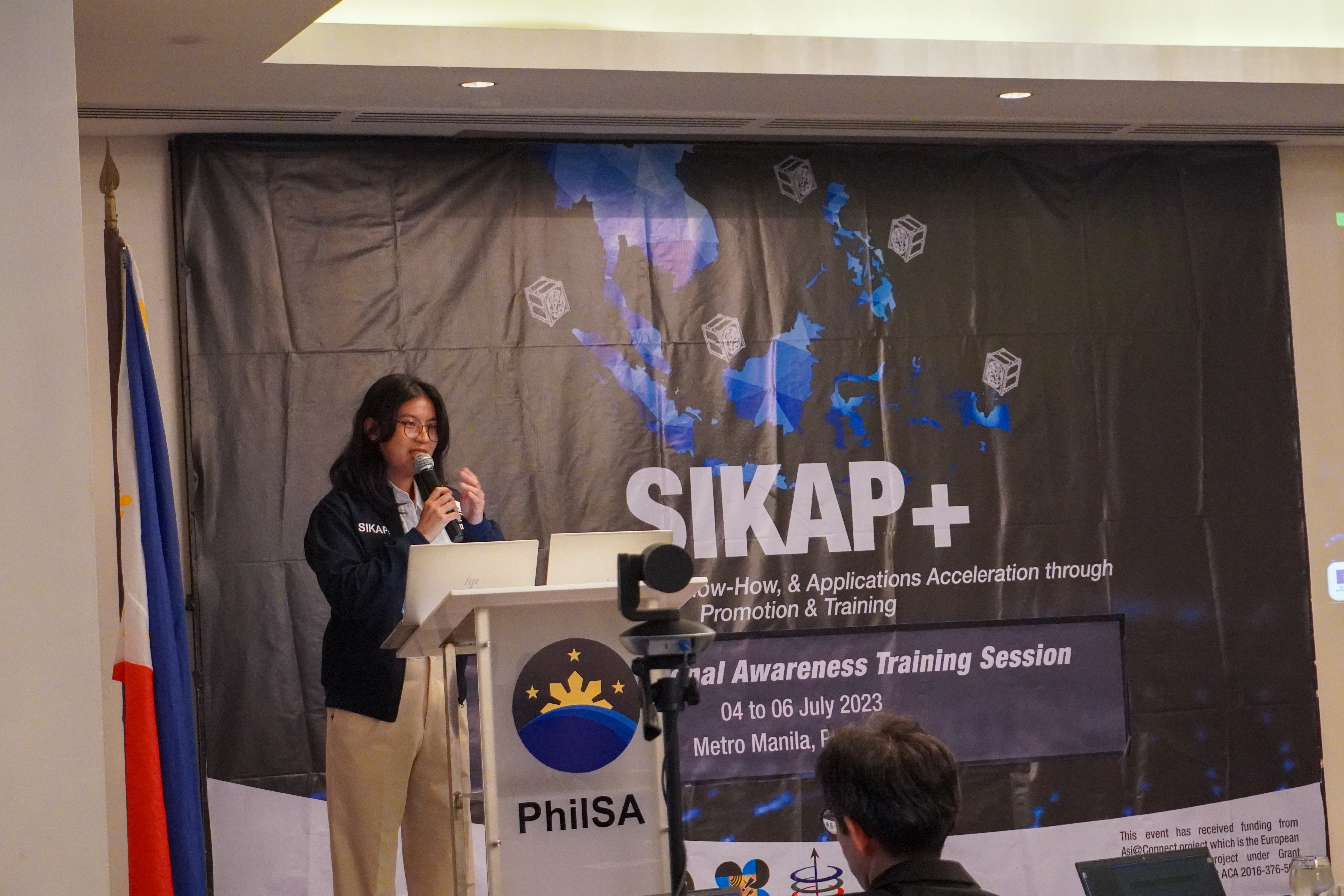
Project Leader Keziah Bartilad welcomes the participants during the opening remarks and presents the SIKAP+ Project.
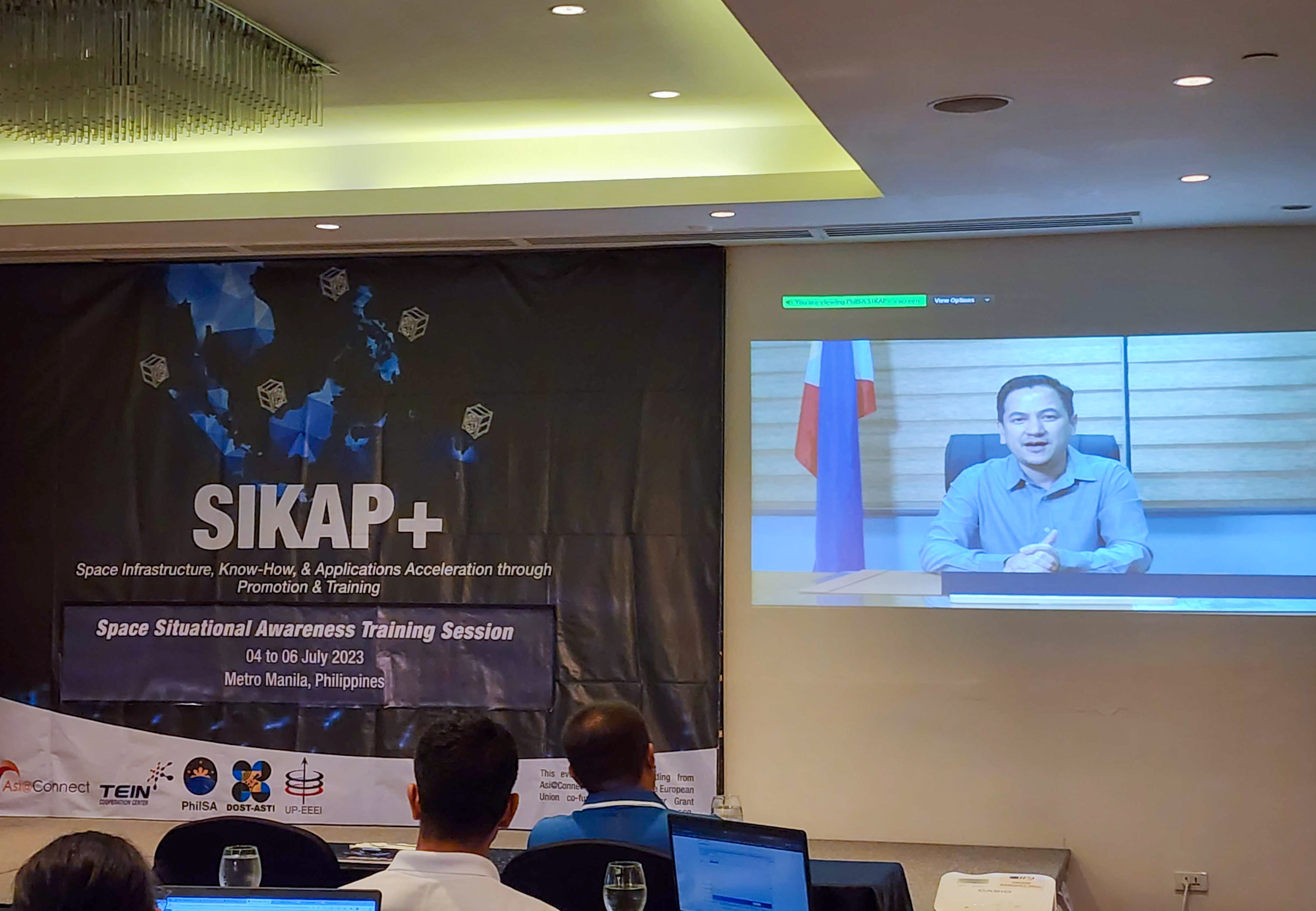
DOST-ASTI Dir. Franz de Leon delivers the message of support as one of the SIKAP+ Project co-implementors.
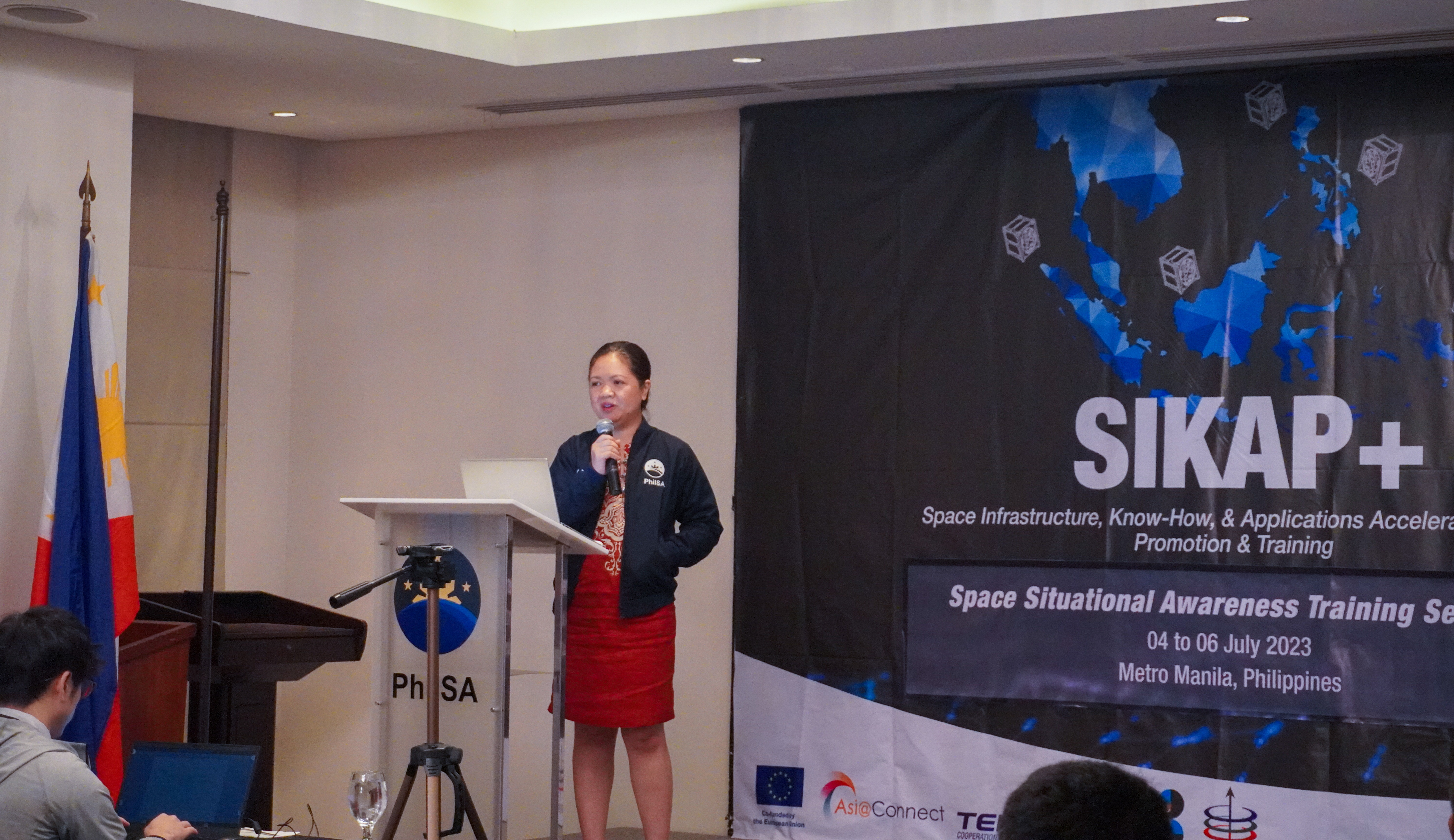
PhilSA Deputy Director General Gay Jane P. Perez delivers the keynote address on behalf of Director General Joel Joseph S. Marciano, Jr.
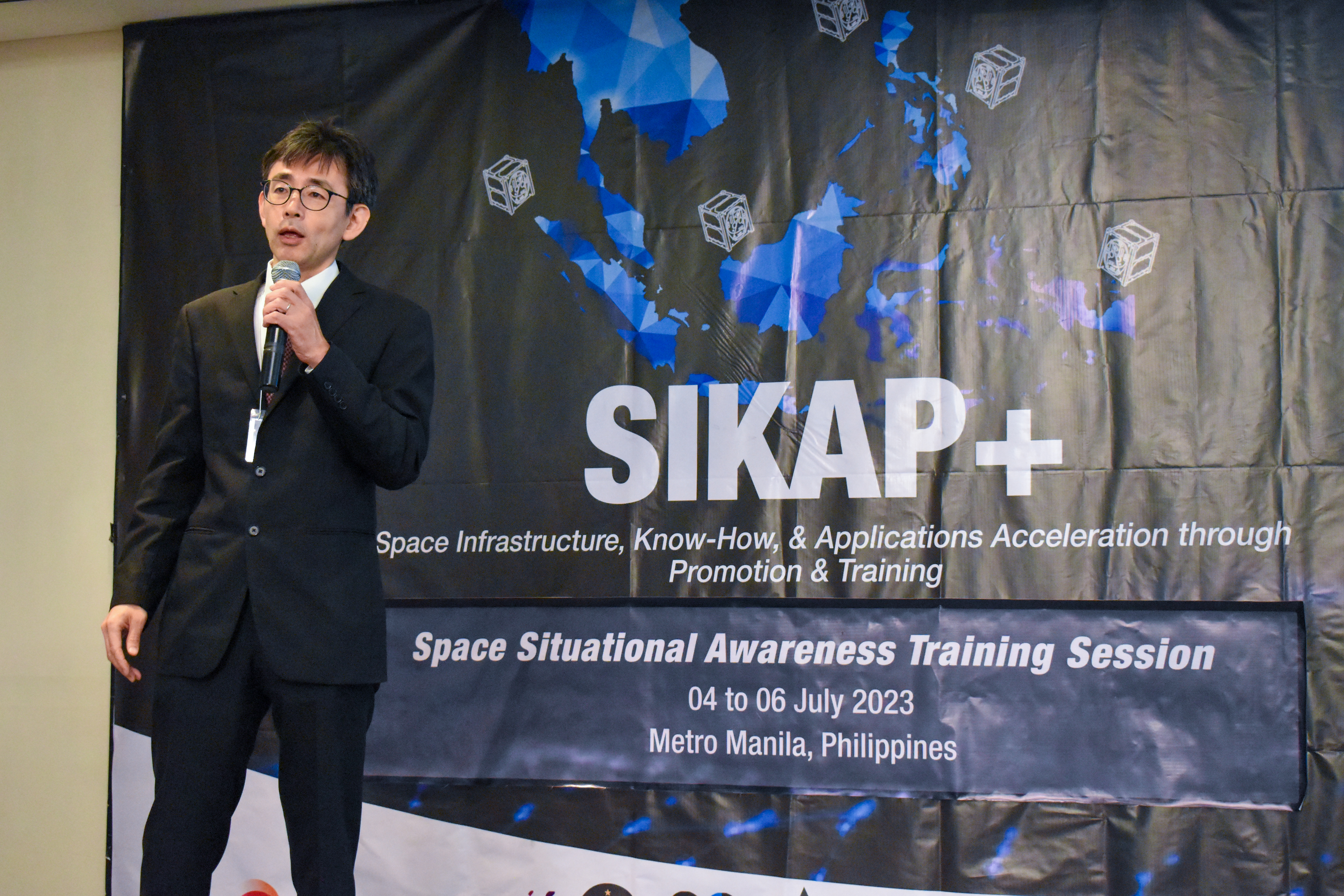
Dr. Toshifumi Yanagisawa, Associate Senior Researcher of JAXA begins the technical presentations with a lecture on “Ground-based Optical Observation System for LEO Objects and Future Collaboration.”
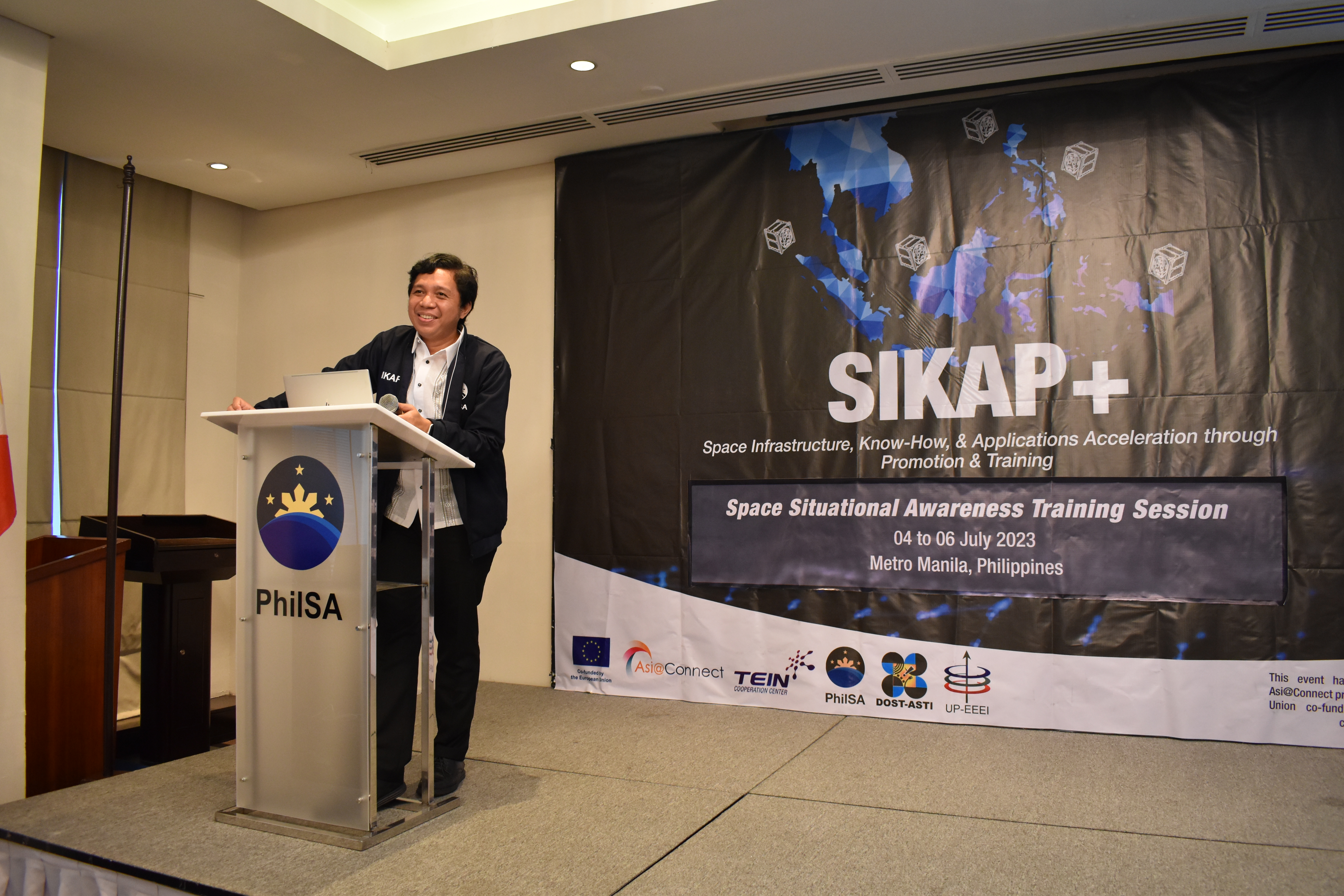
PhilSA Atty. Giovani Concepcion presents the existing regulations governing the safe use of outer space.
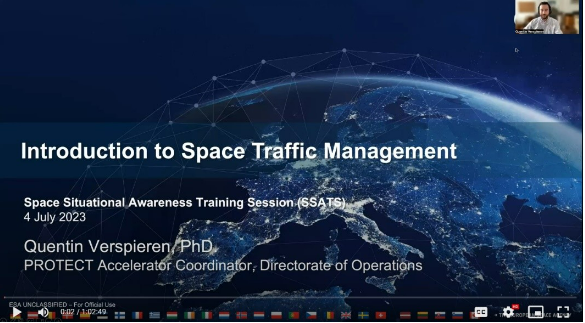
Professor Quentin Verspieren, PROTECT Accelerator Coordinator of ESA and the University of Tokyo, discusses space traffic management standards or the framework for monitoring the orbit activities of satellites in space in a recorded video lecture.
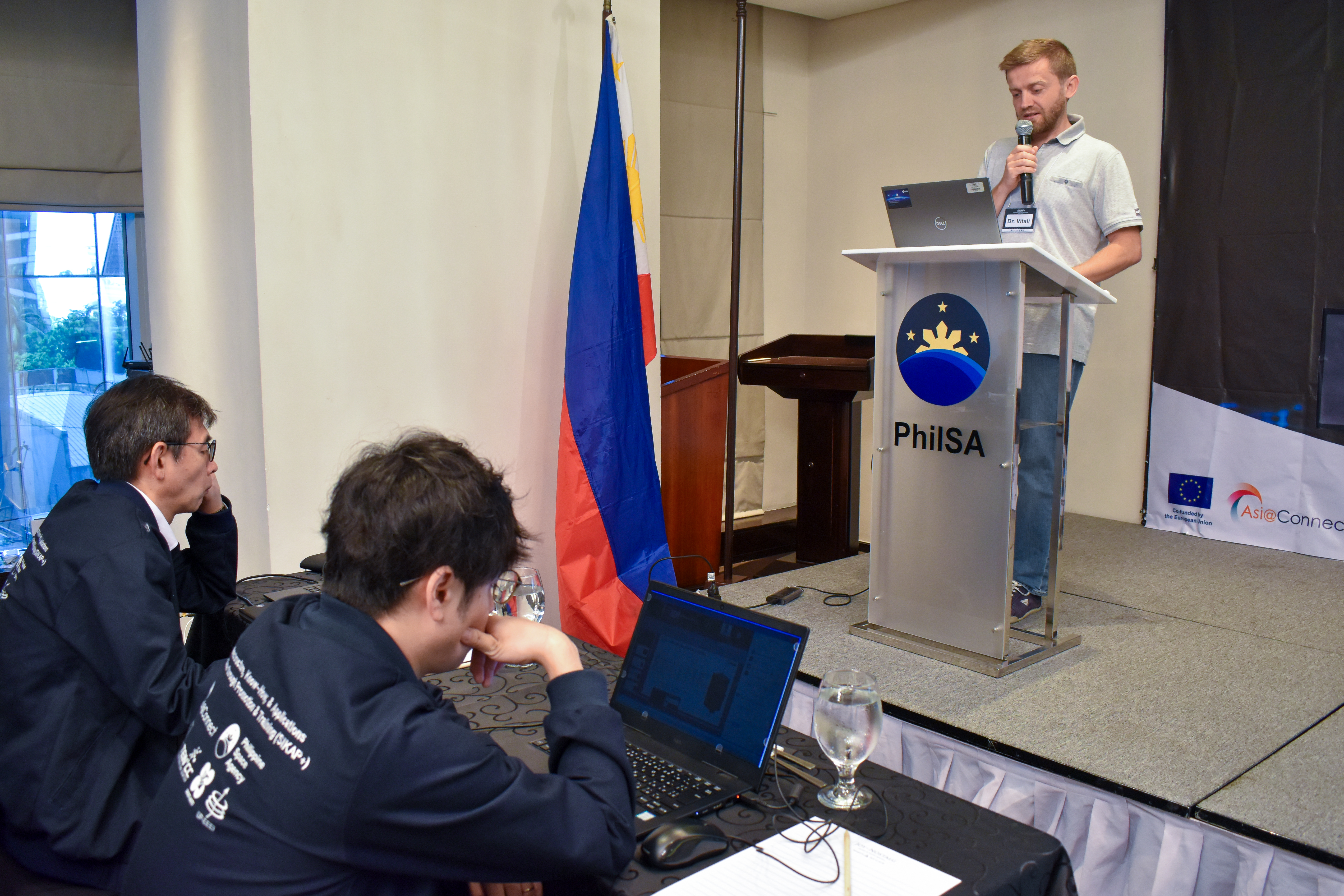
Dr. Vitali Braun, Space Debris Engineer affiliated with the IMS Space Consultancy and ESA Space Debris Office, discussed space debris covering topics on existing technologies, mitigation practices, and remediation and related technologies.
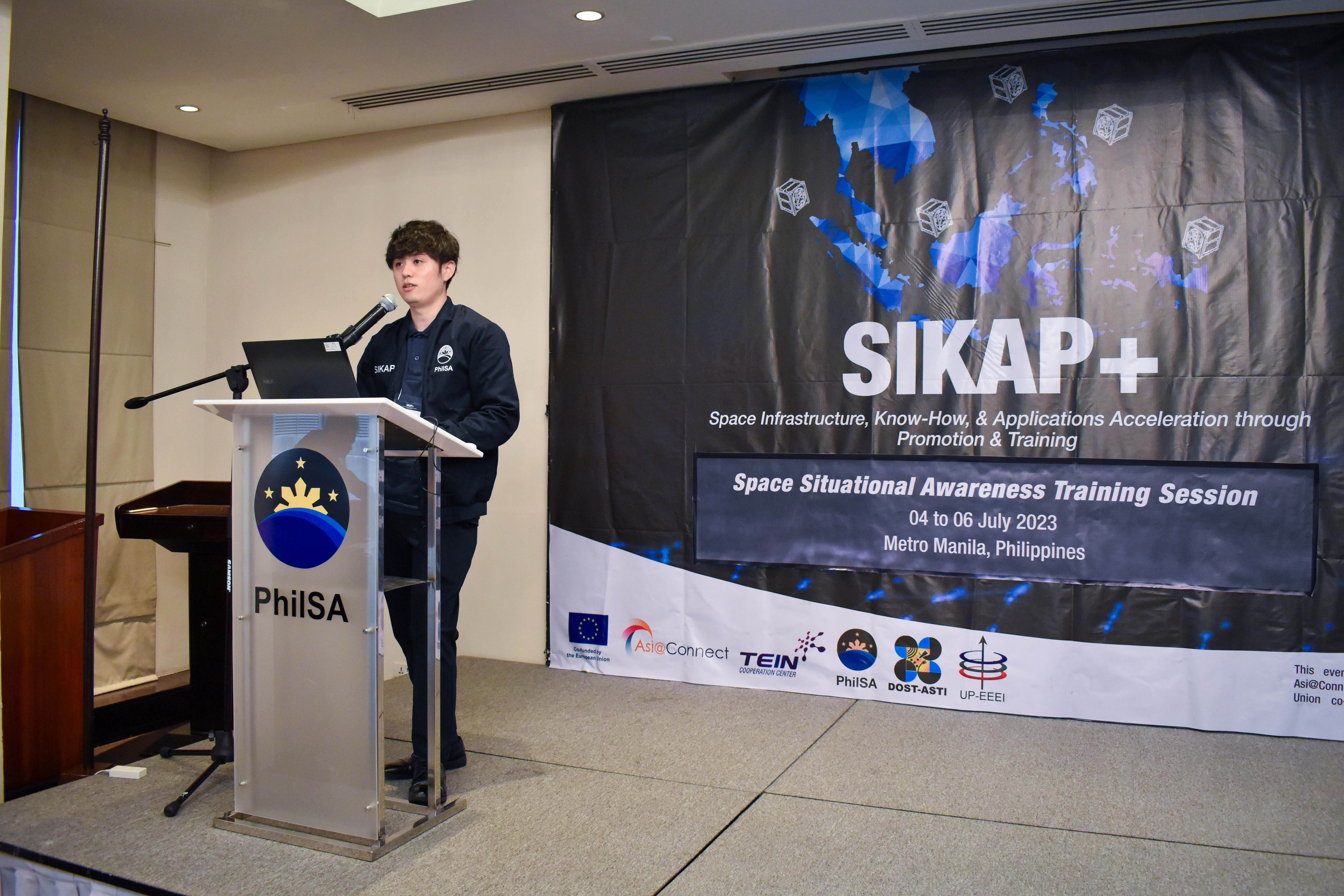
Dr. Yuki Akiyama, Research and Development Engineer of JAXA, demonstrated RABBIT for analyzing collision risk due to threat posed by space debris.
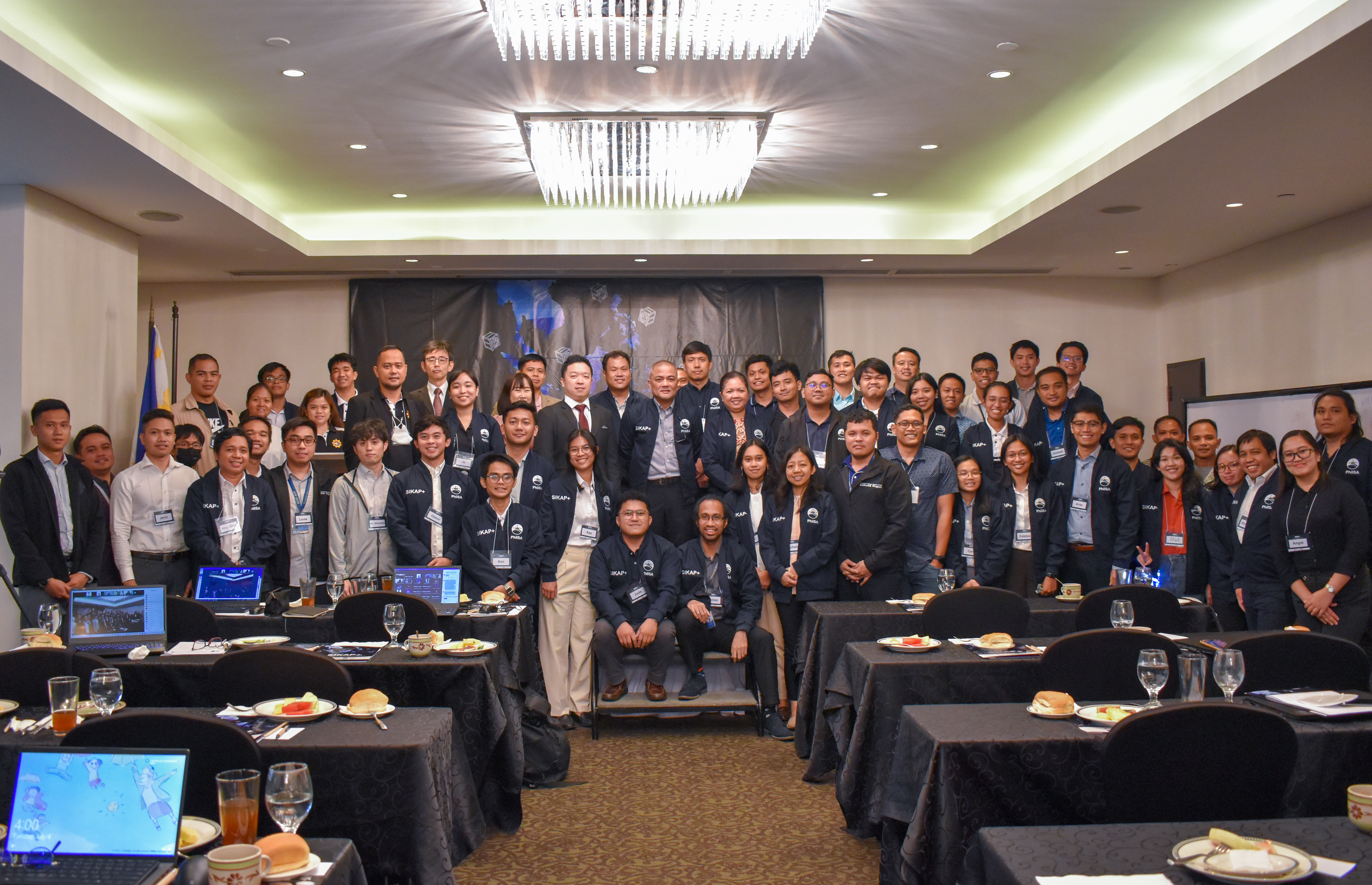
PhilSA proposes collaboration project with ASEAN member states
An ASEAN workshop on SSA and space traffic management (STM) also took place at the PhilSA Conference Room in Eastwood, Quezon City on 07 July.
The workshop included a comprehensive discussion on the ASEAN Cooperation Project Cycle which led to preparations on the development of an initial concept note and framework proposal on SSA and STM aligned with the ASEAN Community Vision 2025.
PhilSA proposed a collaboration project with ASEAN Member States (AMS) that seeks to augment the absence of capability regarding SSA and STM since the region has a rapidly growing economy in the field of space technology. Additionally, the increase of satellites launched by AMS in the past years underscores the need to understand the said topics.
Upon completion, the project proposal will undergo assessment by the ASEAN Secretariat and secure funding approval.
PhilSA officials and key personnel onsite were joined by Dr. Sittiporn Channumsin, Director of Space Technology Research Center (S-TREC) and Engineer Acharaporn Bumrungkit of GISTDA. Delegates of ASEAN member states from GISTDA (Thailand), MYSA (Malaysia), and Badan Riset dan Inovasi Nasional or the National Research and Innovation Agency of Indonesia were present virtually.
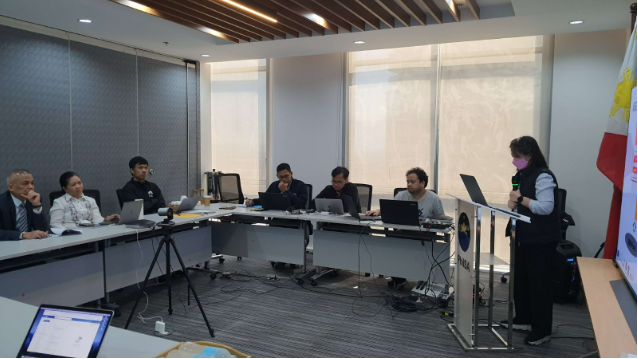
ASEAN SSA and STM workshop in the PhilSA Conference Room




